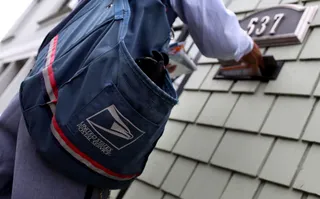Don't Become a Victim: 9 Ways to Avoid Credit Card Fraud
How to protect yourself against identity theft.

1 / 10
Fraud Watch - In a study conducted by Javelin Strategy and Research, the number of fraud victims has gradually increased within recent years, despite creditors' heightened security measures. It can take months or even years to rebuild your credit once it’s been compromised by thieves. Read on for nine helpful tips to protect you and minimize the chances of becoming a credit card fraud victim. By Dontaira Terrell (Photo: Fuse/Getty Images)

2 / 10
Monitor Accounts Regularly - Regularly monitoring your financial statements can help you immediately identify and report wrongful action made to your accounts. Also, holding onto your receipts can help you compare transactions with your statements. (Photo: Sean De Burca/Corbis)

3 / 10
Sign Up for Account Alerts - Enrolling in account alerts through your financial institution helps minimize the risk of fraudulent activity. They immediately notify you of sudden account charges, suspicious purchases or attempted transactions. (Photo: Kate Kunz/Corbis)

4 / 10
Carry Only What’s Necessary - Only carrying the cards that are necessary can reduce the damages if your wallet or purse is lost or stolen. (Photo: Joe Raedle/Getty Images)

5 / 10
Keep Your Accounts Secure - Who doesn’t enjoy a little online shopping every now and then? Once you’re done shopping, log out of your account. If you have a password associated with your account, make sure the strength of the password is strong. (Click here for some tips.) This helps minimize hackers' ability to access your credit card information. (Photo: moodboard/Corbis)
ADVERTISEMENT

6 / 10
Be Cautious of Giving Out Personal Information - If you receive a call from an unidentified number asking for personal information, be sure to use your sound judgment and ask plenty of questions. This helps in verifying if the person you are speaking with is a legitimate representative from your banking institution. (Photo: Sharie Kennedy/LWA/Corbis)

7 / 10
Check Your Credit Report - Fraud can take place in many forms. As a result, you should take advantage of receiving your free annual credit report or credit score from one of the three major credit bureaus. Not only does it help you to better manage your personal finances, but it also serves as an early indicator of whether you have become a victim of credit card fraud. (Photo: JGI/Jamie Grill/Blend Images/Corbis)

8 / 10
Delete, Delete, Delete! - Immediately delete pre-approved email offers from your inbox. The more pre-approved offers laying around in your mailbox, the greater the risk of third parties gaining access to your personal information. (Photo: JGI/Tom Grill/Blend Images/Corbis)

9 / 10
Finalize Your Receipts - Leaving the tip line blank is a big no-no! Always draw a line through it, especially if you don’t intend to leave a tip on your card. You don’t want to risk having miscellaneous charges unknowingly added. (Photo: RK Studio/Blend Images/Corbis)
